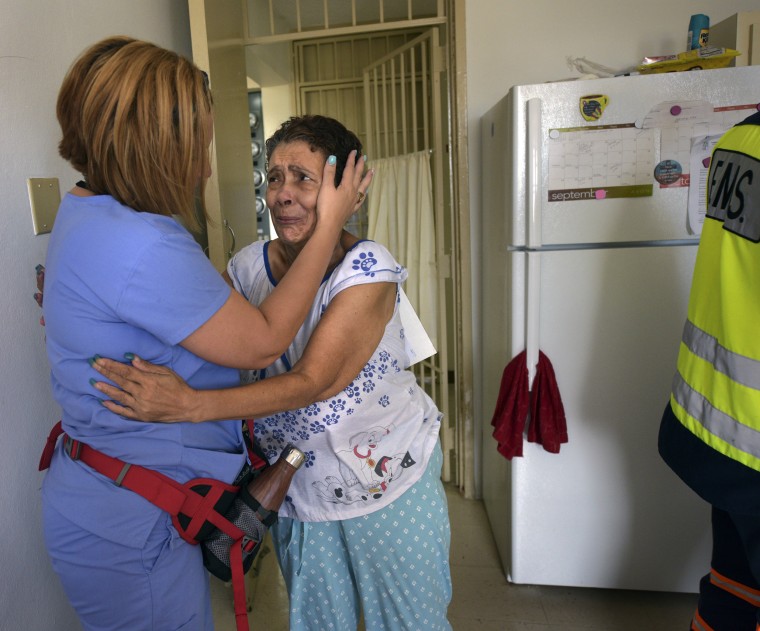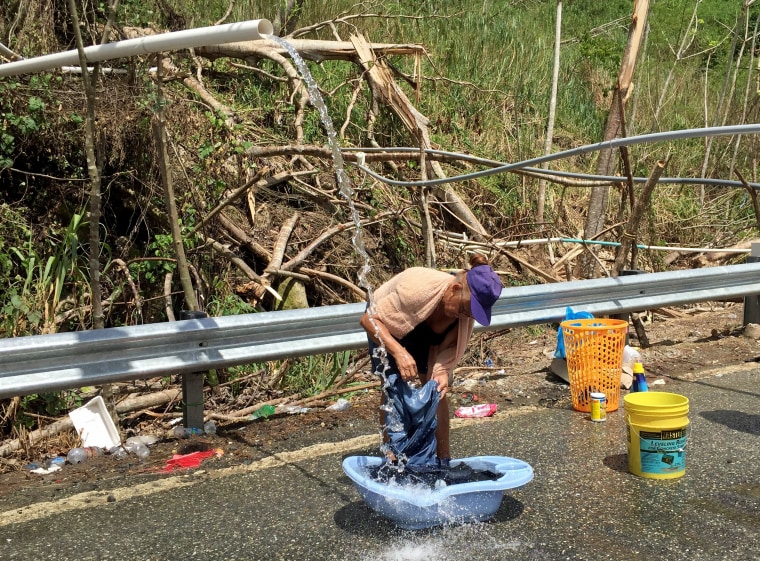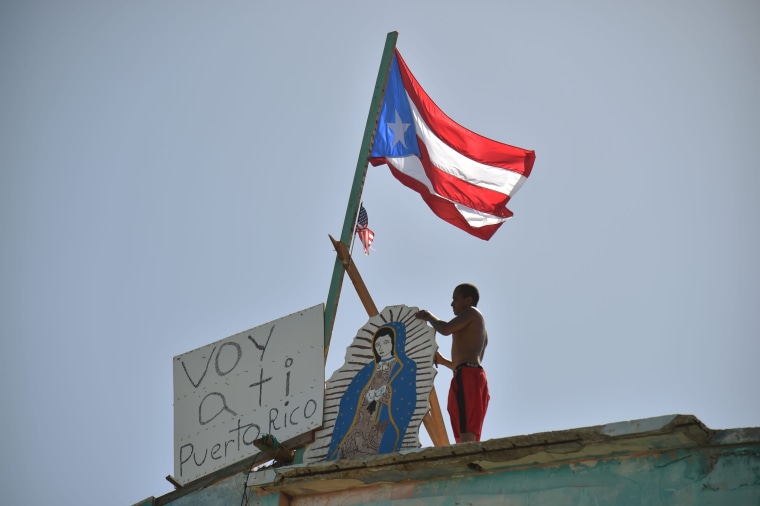Last Tuesday evening, after President Donald Trump left Puerto Rico, my brother called. "This is horrible. What are you hearing in the States?" he said. Because he is dealing with the aftermath of Hurricane Maria, his tone worried me.
My brother, however, was not referring to the hurricane but to a statement Trump made during his visit to Puerto Rico that day: "I hate to tell you, Puerto Rico, but you've thrown our budget a little out of whack." The words suggested abandonment.
This is not the typical statement presidents make when visiting disaster victims, but then again there is nothing typical about Trump. Not a week had passed since Hurricane Maria demolished Puerto Rico when he tweeted about the U.S. territory's debt, saying that Texas and Florida were doing great but Puerto Rico was in "deep trouble." He tweeted about Puerto Rico's old electrical grid which was in "terrible shape" and the billions it owes Wall Street.
And on the same evening my brother called, Trump appeared on "Hannity" stating that Puerto Rico's debt would have to be waived, not really knowing what this entails.
First, the PROMESA law enacted by Congress last year already sets a legal process to restructure and reduce Puerto Rico's $74 billion debt. Second, Congress is more likely to cut Puerto Rico a break by providing financial assistance than by assuming its debt.
It is clear from Trump's comments during this devastating humanitarian crisis that money is the main thing on his mind. It is also clear that Trump wants to walk away from his Puerto Rico problem in the same way he walked away from his bankrupt casinos. Except he can't.
If the United States walks away from Puerto Rico the Island will be depopulated. If Puerto Rico's infrastructure is not restored and its commercial and industrial base not reestablished, if its small business owners are not supported and its health care is not accessible, Puerto Ricans will stampede out of the Island and join the almost half a million who left before them because of the fiscal crisis.
With its tax base eroded the Puerto Rican government will be permanently crippled and unable to service its remaining population, let alone the debt.
RELATED: 'A Nightmare': Recovery Stifled for Puerto Ricans in Hard-Hit Towns
Once Puerto Ricans arrive they will begin to use federal, state and local government programs that are often more costly to provide in the United States than on the Island. For instance, the federal government spends about $5,790 less in Medicaid and $3,492 less in Medicare per person in Puerto Rico than on the mainland.
Politically speaking, not investing in Puerto Rico could hurt the GOP. New Puerto Rican arrivals could turn states like Florida blue, as they will never forget that the head of the Republican Party turned his back on them.
So it appears that Trump cannot walk away from this particular deal without making matters worse.

The smartest to thing for Trump to do is to tackle the Puerto Rico problem before it grows out of control.
There are some immediate measures he can take.
First, he should ensure that Puerto Rico has the military and civilian personnel and the assets needed to restore transportation, telecommunications and electricity; to ensure relief supplies are delivered; and, to preserve law and order.
Second, he should waive funding caps, eliminate local match requirements, and give Puerto Rico greater access to federal assistance programs in FEMA and Departments of Agriculture, Commerce, Housing and Urban Development, Labor, Transportation and others.
Third, he should extend the Jones Act waiver for Puerto Rico beyond the 10 days approved initially. The Jones Act requires that only vessels built, owned and operated by Americans be used between U.S. ports. By allowing foreign vessels to deliver goods Puerto Rico will have greater access to fuel, food, medicines, clothing, and building supplies. Since U.S. vessels are more expensive, the waiver will also lower the cost of imported goods needed for recovery and reconstruction.
Hurricane Maria was a hurricane like no one has ever seen. In terms of overall intensity, Hurricane Maria is the 6th hurricane in a ranking of more than 13,000 cyclone events around the world since 1950.
RELATED: Puerto Rico's Hospitals Still in Triage Mode, 2 Weeks After Maria
Hurricane Maria could lower Puerto Rican incomes by 21 percent over the next 15 years, which represents a $180 billion loss in economic output.
Unlike hurricane-ravaged states, Puerto Rico does not have the resources to rebuild after FEMA pulls out. Preliminary estimates place storm damage north of $90 billion.

Therefore, Congress must appropriate funds specifically earmarked for Puerto Rico's disaster relief and reconstruction. This needs to include access to emergency liquidity programs because the Puerto Rican government expects to run out of cash in three to four weeks.
When Treasury officials warned back in 2015 that Puerto Rico's fiscal problems could turn into a humanitarian crisis they were accused of exaggerating the situation. People could not see the crisis because the crisis was developing in slow motion.
For us Puerto Ricans it was clear. We all knew people who had left the Island looking for better jobs. Parents, like my brother, sent their children to college in the states no longer expecting them to return. Businesses closed and houses were shuttered. There was less traffic in San Juan.
All Hurricane Maria did was to speed up and intensify the humanitarian crisis for the whole world to see. There is still time to reverse its course but only if we take action now.
